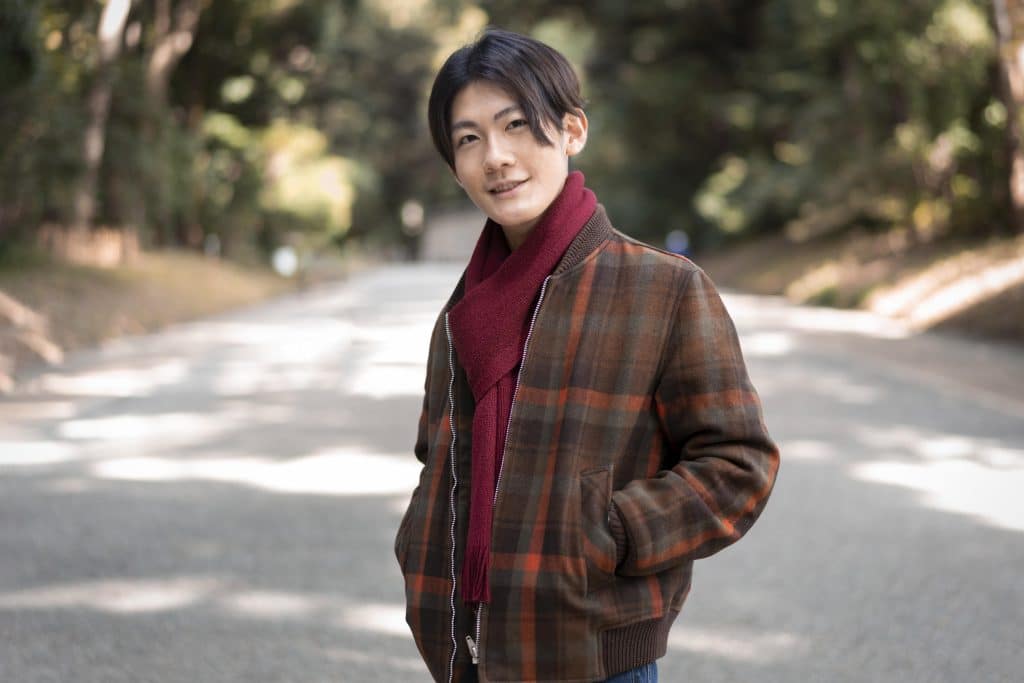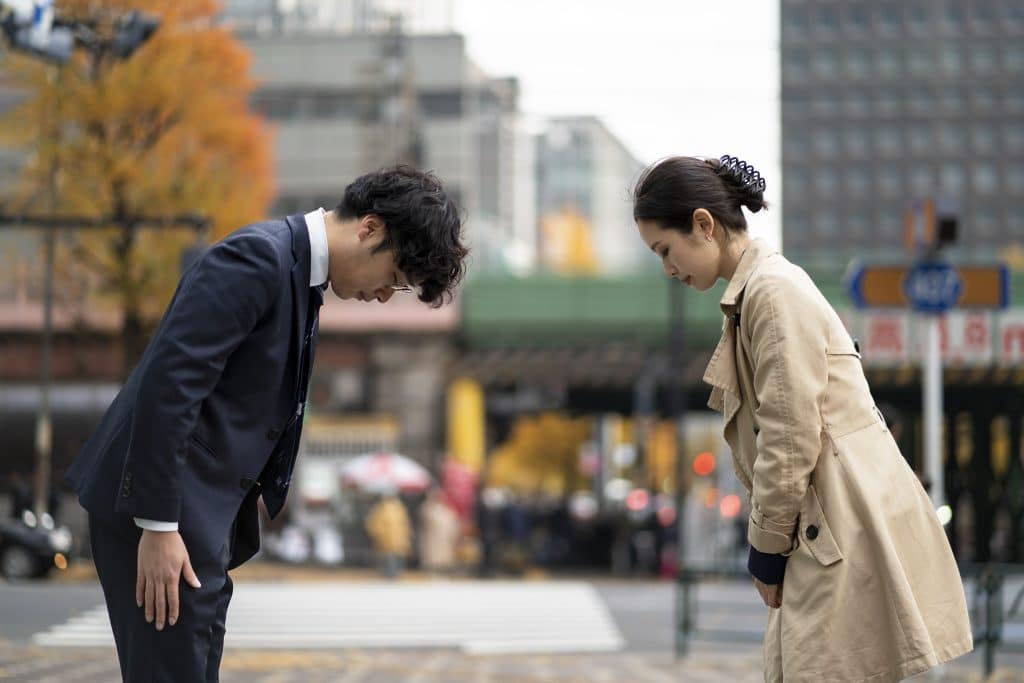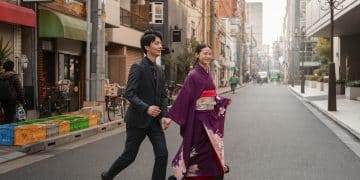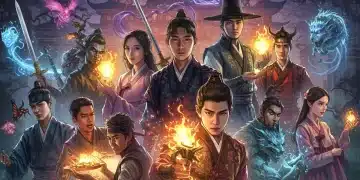The Asian Corporate World-10 Doramas That Capture it

Below are ten outstanding Japanese and Korean dramas that explore workplace culture, ambition, and humanity inside corporate walls.
2. Shitamachi Rocket (Japan)
Theme: Innovation vs. Tradition
Lesson: “Pride in craftsmanship defines true success.”
Shitamachi Rocket stands as a heartfelt tribute to Japan’s corporate spirit of innovation and the resilience of its small and medium-sized enterprises (SMEs).
The drama centers on a modest factory owner and his dedicated team who strive to develop groundbreaking rocket technology while competing against massive corporate conglomerates.
At its core, the story embodies the tension between corporate ambition and the traditional values of monozukuri (ものづくり) — the Japanese philosophy of craftsmanship, precision, and pride in one’s work.
It reminds viewers that true progress isn’t measured by stock prices or market dominance, but by the passion, teamwork, and ethical purpose that drive innovation forward.
Through the struggles of independent inventors and local engineers, the series celebrates the often-overlooked backbone of Japan’s economy: family-run workshops and neighborhood factories that uphold national identity through their corporate integrity and technical excellence.
Rather than rejecting tradition, Shitamachi Rocket shows how innovation flourishes when craftsmanship, ethical responsibility, and community pride work together.
Ultimately, the drama delivers a powerful message for today’s corporate world — success without soul is hollow. It’s not the size of your company that defines greatness, but the purpose and pride behind every creation.
3. Misaeng (Incomplete Life) — Korea

Theme: Survival in Corporate Reality
Lesson: “Effort outweighs talent.”
Misaeng (Incomplete Life) stands as one of the most powerful and emotionally authentic portrayals of the modern corporate world in Korean television. Based on the hit webtoon by Yoon Tae-ho, the series captures the raw and unglamorous side of office life — long hours, silent hierarchies, and the fragile balance between ambition and burnout.
At the center of the story is Jang Geu-rae, a former baduk (Go) prodigy who fails to achieve his dream of becoming a professional player. When he joins a large trading company as an intern, he enters a world where talent matters less than persistence, and where corporate survival depends on emotional intelligence, teamwork, and humility.
His struggles mirror the experiences of millions of young professionals trying to find meaning in repetitive tasks, rigid structures, and constant pressure to perform.
The brilliance of Misaeng lies in its realistic depiction of corporate dynamics — from overbearing bosses and unspoken office politics to quiet acts of kindness that hold teams together.
It reflects Korea’s deeply hierarchical corporate culture, where age, rank, and social conformity often dictate success. Yet, it also celebrates the dignity of everyday effort, suggesting that even in an “incomplete life,” perseverance and integrity give purpose to work.
Unlike many dramas that glorify sudden success or romanticize career triumphs, Misaeng offers something rare: emotional honesty. It reminds viewers that not every story ends in promotion or recognition — sometimes, the victory lies in simply enduring, learning, and growing through hardship.
This authenticity is what makes Misaeng resonate across Asia and beyond, becoming a mirror for anyone who has ever felt invisible in the corporate environment yet continues to give their best.
4. Hataraki Man (Japan)
Theme: Women and Ambition
Lesson: “Ambition has no gender.”
Hataraki Man is a sharp, insightful, and deeply human portrayal of what it means to be a career-driven woman in Japan’s demanding corporate world.
The story follows Hiroko Matsukata, a passionate magazine editor known for her work ethic and relentless drive to deliver results. As one of the few women thriving in a male-dominated newsroom, Hiroko constantly faces the dual burden of societal expectation and personal ambition — navigating between her professional identity and her desire for balance, fulfillment, and recognition.
Through Hiroko’s journey, Hataraki Man challenges traditional gender roles embedded in Japanese corporate culture, where women are often expected to prioritize domestic responsibilities over career growth.
The drama exposes the subtle and overt ways women encounter bias — from being overlooked for promotions to enduring patronizing remarks about emotional resilience or “femininity.” Yet, it also celebrates female professionalism, showing how determination, competence, and passion can redefine what success looks like for modern women in Japan.
What makes this series stand out is its nuanced portrayal of work-life conflict. Hiroko’s internal struggle is not just about choosing between career and love, but about finding identity and self-worth in a system that often refuses to make space for women’s ambition. Rather than idealizing her as a “superwoman,” Hataraki Man humanizes her — tired, flawed, but driven by purpose. It presents a powerful statement: the problem isn’t women being ambitious, but workplaces being slow to evolve.
The drama’s relevance continues today as more Japanese companies begin addressing gender equality and work-life reform. By shedding light on the emotional cost of success and the resilience it demands, Hataraki Man inspires a new conversation about ambition, equality, and identity within corporate Japan.
5. Search: WWW (Korea)
Theme: Female Empowerment and Modern Ethics
Lesson: “Strength and compassion can coexist.”
Search: WWW is one of the most progressive and empowering portrayals of women in the modern corporate world, breaking away from stereotypes that often define female characters by romance or emotional dependence.
Set in South Korea’s high-pressure tech industry, the drama follows three ambitious women—Bae Ta-mi, Cha Hyeon, and Song Ga-gyeong—each navigating personal ideals, power struggles, and ethical dilemmas as they lead competing web portal companies.
At its core, Search: WWW explores what female empowerment looks like in the digital age. These women are not written as flawless “superheroes” but as complex individuals balancing ambition, vulnerability, and moral conviction.
They face workplace discrimination, political manipulation, and the burden of public scrutiny—yet they respond not with rivalry or cruelty, but with empathy, professionalism, and resilience. The show redefines success by showing that strength and compassion can coexist, and that collaboration can be more powerful than competition.
The drama also dives deep into the theme of digital ethics. As executives in charge of search engines and online content, the protagonists grapple with questions about data privacy, media manipulation, and the moral responsibility that comes with influencing millions.
This makes Search: WWW not just a workplace story but a mirror to our times—where power in the corporate tech world increasingly shapes truth, reputation, and identity.
Visually sleek and narratively bold, the show’s tone reflects South Korea’s evolving corporate culture, where women are claiming leadership roles once dominated by men. Each of the three heroines represents a different facet of empowerment:
Ta-mi challenges unfair traditions with logic and courage, Hyeon embodies emotional intelligence and integrity, and Ga-gyeong illustrates the pain of breaking free from control. Together, they form a triad of ambition, authenticity, and independence that feels both aspirational and real.
Beyond the boardroom battles, Search: WWW also explores emotional maturity—how to maintain relationships, friendships, and personal happiness without losing oneself to career or power. It’s a story about redefining success in an age when corporate values, social media influence, and personal identity collide.
🇰🇷 6. My Mister (Korea)

6. My Mister (Korea)
Theme: Empathy in the Workplace
Lesson: “Kindness is resistance.”
My Mister (Na-ui Ajusshi) is one of the most emotionally profound and socially reflective Korean dramas ever produced. It takes the corporate world—often depicted as a battlefield of ambition—and transforms it into a quiet study of human connection, dignity, and endurance.
Unlike most workplace dramas that focus on success or hierarchy, My Mister reveals the pain, loneliness, and moral exhaustion that often hide behind polite smiles and late-night overtime.
The story follows Park Dong-hoon, a weary middle-aged engineer trapped in the monotony and politics of a corporate office, and Lee Ji-an, a young temporary worker burdened by poverty and emotional scars.
Both characters live under crushing weight—he of responsibility, she of survival—and their bond grows not from romance, but from shared empathy. In a world that values performance over people, their quiet understanding becomes an act of rebellion, a subtle form of resistance against dehumanizing corporate systems.
Through their interactions, My Mister exposes the emotional cost of modern work culture: the fatigue of endless competition, the invisibility of lower-ranked employees, and the unspoken pain of adults forced to suppress their emotions to “fit in.
” Yet, amidst this bleakness, the series radiates hope. It suggests that kindness within the workplace—even small gestures like listening, defending a colleague, or simply offering silence—can heal wounds that no promotion ever could.
What makes My Mister extraordinary is its refusal to glamorize either suffering or success. The drama’s beauty lies in restraint: muted tones, slow pacing, and deeply humane writing that treat empathy as an ethical choice.
In a corporate environment dominated by cold logic and hierarchy, choosing to care becomes a radical act. As the title implies, the story isn’t about heroes or winners—it’s about ordinary people finding grace in imperfection, and humanity in exhaustion.
By the end, viewers realize that My Mister is not a story of climbing ladders but of lifting each other up. It teaches that survival in modern society isn’t just about strength—it’s about compassion. True success, the drama insists, lies not in wealth or rank, but in the ability to stay human in a system designed to strip that away.
7. Nigeru wa Haji da ga Yaku ni Tatsu (We Married as a Job) — Japan

Theme: Work-Life Balance and Social Roles
Lesson: “Love and labor are both partnerships.”
Nigeru wa Haji da ga Yaku ni Tatsu (We Married as a Job) may appear at first to be just another romantic comedy, but beneath its charm lies a sharp and layered reflection on Japan’s corporate culture, gender expectations, and the struggle to achieve genuine work-life balance in a society defined by structure and productivity.
The series follows Mikuri Moriyama, a highly educated woman unable to find stable employment despite her qualifications, and Hiramasa Tsuzaki, a reserved salaryman devoted to his work. When Mikuri begins working as Hiramasa’s housekeeper, circumstances lead them to enter into a “contract marriage,” treating love as labor — complete with wages, schedules, and responsibilities.
What begins as an unusual business arrangement becomes a profound metaphor for Japan’s corporate mindset, where both professional and personal lives are governed by contracts, expectations, and unspoken hierarchies.
Through this unconventional setup, the drama explores how modern relationships mirror corporate dynamics: negotiation, accountability, and teamwork. Mikuri’s insistence on being fairly compensated for domestic labor exposes the deep-rooted inequality in how society values emotional and household work.
Her professionalism, even within the home, challenges the gendered notion that women’s efforts are acts of love rather than legitimate forms of contribution. In doing so, We Married as a Job expands the definition of corporate partnership — showing that fairness, respect, and shared responsibility should apply not only in offices but also in relationships.
At a deeper level, the series critiques Japan’s corporate obsession with productivity and conformity. Both protagonists are products of a system that prizes stability over happiness: Hiramasa’s devotion to his job has left him emotionally isolated, while Mikuri’s unemployment reflects the struggles of highly capable women marginalized by traditional expectations. Their “marriage-as-a-job” arrangement becomes a microcosm of the modern corporate experience — where people perform roles to survive, not necessarily to thrive.
What makes the drama revolutionary is how it balances humor with social commentary. It transforms discussions about love and gender into an exploration of corporate ethics, questioning what it means to work, to care, and to be valued. The message is clear: both love and labor succeed only when built on equality and empathy.
Nigeru wa Haji da ga Yaku ni Tatsu stands as a quiet but powerful critique of Japan’s corporate work culture, reminding viewers that success and stability lose meaning without emotional connection and fairness. It’s not just a story about romance — it’s about redefining what partnership, professionalism, and purpose look like in both the workplace and daily life.
8. Start-Up (Korea)
Theme: Ambition and Innovation
Lesson: “Dreamers shape the future.”
Start-Up is one of the most vibrant portrayals of modern corporate ambition in Korean television, blending emotional storytelling with the thrilling pace of technological innovation. Set in Korea’s fast-evolving start-up ecosystem, the drama follows a new generation of dreamers who believe that passion and creativity can change the world — even when the odds seem impossible.
At the center of the story is Seo Dal-mi, a determined young woman with big dreams but little formal background, and Nam Do-san, a shy but brilliant coder struggling to make his mark. Together, they navigate the chaotic world of corporate entrepreneurship, facing fierce competition, financial challenges, and ethical dilemmas in their quest to build a successful tech company. Their journey reflects the growing shift in Korea’s corporate landscape, where innovation, collaboration, and adaptability have begun to outweigh traditional notions of hierarchy and lifelong employment.
What makes Start-Up stand out is its ability to humanize the often glamorous portrayal of tech culture. Behind the sleek offices and pitch decks lies the emotional cost of ambition — sleepless nights, self-doubt, and the constant struggle to balance idealism with reality. The series shows that true corporate innovation isn’t just about launching products or securing investments; it’s about resilience, integrity, and the courage to learn from failure.
The drama also sheds light on Korea’s generational divide within the corporate world. Older mentors like Han Ji-pyeong bring experience and caution, while younger founders push for speed and disruption. This tension mirrors real-world shifts in Asian business culture, where the line between tradition and transformation grows thinner every year. By portraying both perspectives with empathy, Start-Up celebrates the coexistence of wisdom and youthful ambition — a balance essential to sustainable progress.
Beyond its business setting, Start-Up carries a universal message: innovation is an act of faith. It reminds viewers that while not every idea will succeed, every attempt to create something new contributes to a broader story of growth. Whether through technology, teamwork, or emotional connection, progress always begins with those willing to take risks.
In the end, Start-Up isn’t just about coding or competition; it’s about redefining what it means to succeed in the corporate era. The show’s warmth, optimism, and honesty make it a powerful reflection of our time — where ambition is no longer measured by corporate loyalty but by the courage to dream, fail, and begin again.
9. Unnatural (Japan)

Theme: Professional Ethics and Justice
Lesson: “Doing the right thing is a job in itself.”
Unnatural is one of Japan’s most compelling modern dramas — a gripping blend of medical mystery, moral philosophy, and corporate critique. Although it revolves around a team of forensic pathologists investigating unexplained deaths, the series transcends the procedural genre to expose the ethical fractures within Japan’s corporate and institutional systems. It’s not merely a story about science and investigation; it’s about integrity in a world where doing the right thing often means going against authority.
At the heart of the story is Mikoto Misumi, a dedicated forensic doctor at the Unnatural Death Investigation Laboratory (UDI). Each case she handles uncovers layers of corporate negligence, political manipulation, or social injustice — from workplace overwork deaths (karōshi) to medical cover-ups and environmental scandals. These storylines mirror real-life issues within Japan’s tightly structured corporate culture, where maintaining reputation often takes precedence over accountability.
Through its meticulous storytelling, Unnatural explores how corporate ethics and human empathy collide. The drama asks: what happens when institutions built to protect people become obsessed with protecting their image instead? Every episode challenges viewers to consider the moral responsibilities of professionals — doctors, executives, or public officials — within a system that rewards silence and compliance. In this sense, Unnatural becomes a bold commentary on the emotional and ethical weight carried by ordinary workers trapped within flawed corporate hierarchies.
Despite its dark subject matter, the show radiates hope through teamwork and compassion. The UDI team’s integrity represents a new kind of professionalism — one grounded in truth, empathy, and social accountability. By confronting corporate wrongdoing head-on, the characters reclaim the idea that real success in any workplace is measured not by profit or power, but by moral courage.
Unnatural ultimately reminds us that justice isn’t abstract; it’s built through everyday acts of conscience inside boardrooms, labs, and offices. It shows how corporate responsibility extends far beyond business — it’s about preserving the dignity and safety of human life. In doing so, the drama elevates professional ethics from a background theme to the very heart of Japan’s evolving narrative about work and humanity.
10. Chief of Staff (Korea)
Theme: Power, Politics, and Morality
Lesson: “Climbing the ladder can mean losing your soul.”
Chief of Staff (Aide) is a gripping political drama that functions as a mirror to the corporate world, exposing the same hierarchies, rivalries, and moral compromises that shape professional life in high-pressure institutions. Though its setting is the South Korean National Assembly, the series is less about politics itself and more about the machinery of corporate ambition, power, and survival — the unspoken game played behind every closed door where reputation, loyalty, and influence collide.
The story centers on Jang Tae-joon, a former detective who becomes the right-hand strategist for a powerful assemblyman. Intelligent, ambitious, and ruthlessly efficient, Tae-joon embodies the archetype of the corporate climber — someone whose talent and discipline propel him upward, but whose moral compass blurs with every promotion. Through his journey, the drama explores a central paradox: in both politics and corporate life, success often demands sacrifice — not just of time and energy, but of ideals and empathy.
Each episode delves into the dark intricacies of institutional power, where loyalty is transactional, alliances are fleeting, and every decision carries ethical consequences. The show’s boardroom-like negotiations and backroom deals echo the culture of corporate politics, where strategy and image management often outweigh truth and justice. The pressure to maintain status mirrors the unrelenting demands placed on employees in Korea’s corporate hierarchy, making the story universally resonant for anyone who’s ever worked under cutthroat conditions.
What sets Chief of Staff apart is its psychological depth. Instead of portraying heroes or villains, it humanizes ambition — showing how systemic pressure can turn even the most principled individuals into players of compromise. In this way, the drama becomes a meditation on corporate morality: when every success comes at someone’s expense, is integrity still possible?
The series also sheds light on the emotional exhaustion behind leadership. Tae-joon’s climb to influence is not marked by celebration, but by growing isolation. Like many in executive or corporate roles, he learns that power can be both empowering and dehumanizing. His inner turmoil mirrors the silent struggles of professionals who achieve outward success but feel an internal void — a universal reality in modern workplaces driven by performance metrics rather than human connection.
Visually sleek and politically intelligent, Chief of Staff uses the lens of governance to critique broader corporate systems of control and compliance. It challenges viewers to reflect on how easily ambition can corrupt integrity, and how difficult it is to maintain compassion in environments built on competition.
Ultimately, the drama delivers a sobering but essential message: climbing the ladder without purpose leads nowhere. Whether in politics or corporate life, true leadership is not about gaining power — it’s about how responsibly you wield it.
⚖️ The Changing Face of Asian Corporate Culture

Modern doramas reveal a cultural transformation:
-
Younger workers reject unpaid overtime and toxic loyalty.
-
Women demand fair promotion and flexibility.
-
Mental health and well-being become part of the professional dialogue.
What once was silent endurance (gaman) is now turning into emotional awareness and authentic communication.
Shows like Start-Up and Search: WWW embody this new mindset — where creativity, balance, and humanity are the real goals.
The Japan Times – Work Culture Reflected in Japanese Dramas
🧩 Conclusion: Humanity Beyond the Desk
Doramas about work and corporate life go far beyond entertainment — they are powerful reflections of modern identity and human emotion. They remind us that every office, every deadline, and every quiet conversation hides something deeper: stories of sacrifice, pride, compassion, and connection.
Through their powerful storytelling, Asian dramas transform routine tasks into moral lessons, showing that even within rigid hierarchies, kindness and integrity still have the power to change lives. Behind every spreadsheet lies a dream; behind every act of endurance, a heart still learning what it means to be human.
These narratives teach us that work is not just a place to earn a living — it’s a living classroom where people grow, struggle, and rediscover their worth. The most powerful victories aren’t promotions or titles, but the quiet realization that compassion, respect, and authenticity matter more than success itself.





